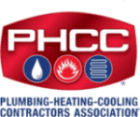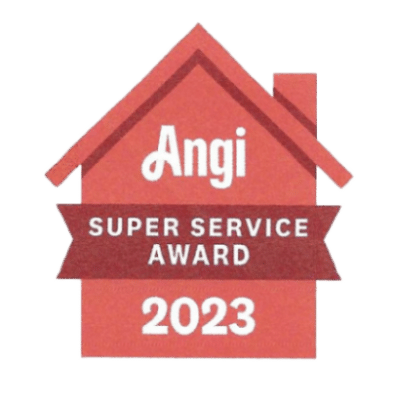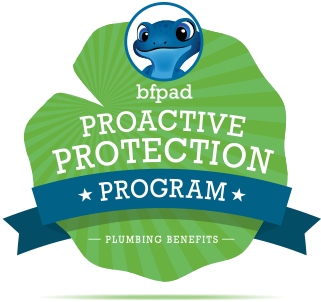
Essential Emergency Plumbing Tips for Homeowners
Emergency Plumbing – Have you ever faced a sudden plumbing disaster? Quick action is crucial during plumbing emergencies. Burst pipes, overflowing toilets, or malfunctioning water heaters can cause significant damage to your home. Understanding common plumbing issues and knowing what to do can save time, money, and stress.
Emergency plumbing issues can strike at any moment. A burst pipe can flood your home within minutes, causing extensive water damage. Clogged drains can lead to backups and unpleasant odors, while a faulty water heater can leave you without hot water when you need it most. Recognizing these emergencies and taking immediate action is vital for any homeowner.
In this guide, we’ll explore essential tips and steps for managing plumbing emergencies. From identifying the signs of a burst pipe to knowing when to call a professional plumber, we’ve got you covered. We’ll also highlight the importance of having the right tools and provide advice on temporary fixes you can make while waiting for professional help.
Identifying Plumbing Emergencies
Do you know how to spot a plumbing emergency? Recognizing the signs early can prevent severe damage. Here are some common plumbing emergencies every homeowner should be aware of:
Burst Pipes
A burst pipe is a serious emergency that requires immediate attention. Signs include a sudden drop in water pressure, visible water leaks, and flooding. Burst pipes can cause extensive water damage to your home, so it’s crucial to act quickly.
Clogged Drains
Clogged drains are more than just an inconvenience—they can lead to severe plumbing issues if left unaddressed. Watch out for slow-draining sinks, gurgling sounds from drains, and water backing up in tubs or sinks. These signs indicate a blockage that needs to be cleared.
Overflowing Toilets
An overflowing toilet can create a messy and unsanitary situation. This usually happens due to a blockage in the toilet trap, drain pipe, or vent pipe. If your toilet is overflowing, it’s essential to stop the water flow and address the clog immediately.
Water Heater Malfunctions
A malfunctioning water heater can leave you without hot water and cause significant water damage if it leaks. Common signs of water heater issues include fluctuating water temperatures, strange noises from the unit, and water pooling around the heater. Address these problems promptly to avoid more significant damage.
Immediate Steps to Take During a Plumbing Emergency
What should you do first in a plumbing emergency? Taking swift action can minimize damage and keep your home safe.
Turning Off the Water Supply
The first step in any plumbing emergency is to turn off the water supply. Locate the main shut-off valve for your home and turn it off to stop the flow of water. This will help prevent further damage while you assess the situation.
Containing the Leak
If there’s a visible leak, try to contain it as much as possible. Use towels, buckets, or any absorbent materials to soak up the water and prevent it from spreading. This can help minimize water damage to your floors and walls.
Assessing the Damage
Once the water flow is stopped, assess the damage. Identify the source of the problem and determine whether it’s something you can fix temporarily or if you need to call a professional plumber. A quick assessment can help you take the necessary steps to protect your home.

Tools Every Homeowner Should Have For Emergency Plumbing
Are you prepared with the right tools for a plumbing emergency? Having essential tools on hand can help you manage minor issues before professional help arrives.
Plunger
A plunger is a must-have tool for every homeowner. It’s effective for clearing minor clogs in toilets and drains. Make sure you have both a flange plunger for toilets and a cup plunger for sinks.
Pipe Wrench
A pipe wrench is essential for tightening or loosening plumbing pipes. This versatile tool can help you fix leaks or make minor adjustments to your plumbing system.
Duct Tape and Sealants
Duct tape and plumbing sealants can provide temporary fixes for leaks. While these are not permanent solutions, they can help contain leaks until a professional can make a proper repair.
Plumbing Snake
A plumbing snake, also known as an auger, is useful for clearing deeper clogs in your drains. This tool can reach blockages that a plunger can’t, making it invaluable for serious drain issues.
By identifying plumbing emergencies and knowing the immediate steps to take, you can protect your home from extensive damage. Equipped with the right tools, you’ll be better prepared to handle these situations effectively.
Immediate Steps to Take During a Plumbing Emergency
How quickly can you react to a plumbing emergency? Quick, decisive action can save your home from severe damage. Here’s what to do when a plumbing emergency strikes:
Turning Off the Water Supply
The first and most crucial step is to turn off the water supply. Locate your main shut-off valve and turn it clockwise to stop the water flow. This action prevents further flooding and allows you to address the issue more effectively.
Containing the Leak
Next, focus on containing the leak. Use towels, buckets, or any absorbent materials to soak up water and prevent it from spreading. This step is essential to minimize water damage to your floors, walls, and furniture.
Assessing the Damage
After controlling the leak, assess the damage. Identify the source of the problem and determine whether it’s something you can temporarily fix or if professional help is needed. Quick assessment helps in deciding the next steps and prevents further complications.
How to Temporarily Fix Common Issues
What can you do while waiting for a plumber? Here are some temporary fixes for common plumbing problems.
Using a Plunger for Clogs
For clogged drains or toilets, use a plunger. Ensure a tight seal over the drain or toilet opening and push down firmly several times. This action can often dislodge the blockage and restore water flow.
Patching a Burst Pipe
If you have a burst pipe, patch it temporarily using duct tape or a pipe clamp. Wrap the tape tightly around the leak or secure the clamp over the burst area. This fix should hold until a professional plumber can replace the damaged section.
Managing Water Heater Problems
For water heater issues, first, turn off the power supply. Then, check for leaks or signs of malfunction. If there’s a leak, place a bucket underneath to catch dripping water. For temperature issues, consult the heater’s manual for troubleshooting tips or call a professional if unsure.
Emergency Plumbing Tips: When to Call a Professional Plumber
Is it time to call in the experts? Knowing when to call a professional can save you from costly repairs and extensive damage.
Assessing the Severity of the Issue
If the problem seems too complex or severe for a quick fix, it’s best to call a professional plumber. Persistent leaks, severe clogs, and major appliance malfunctions typically require expert intervention.
Risks of DIY Fixes
Attempting to fix major plumbing issues yourself can lead to further damage and higher repair costs. If you’re unsure about the fix, it’s safer to rely on a professional to ensure the job is done correctly.
Finding a Reliable Plumber
When you need a reliable plumber in Little Elm (75068), The Colony (75056), or Southlake (76092), do thorough research. Look for local Emergency Plumbing service providers with good reviews and reasonable rates. Keep emergency contact information handy for quick access when needed.
Preventing Future Plumbing Emergencies
How can you avoid future plumbing issues? Regular maintenance and smart practices can help prevent emergencies.
Regular Maintenance Tips
Perform regular checks on your plumbing system. Look for signs of wear and tear, and address minor issues promptly. Routine maintenance can prevent major problems down the line.
Seasonal Checks
Different seasons can impact your plumbing. Perform seasonal checks, especially before winter, to ensure pipes are insulated and in good condition to avoid freezing and bursting.
Proper Use of Plumbing Systems
Educate your household on the proper use of plumbing systems. Avoid flushing inappropriate items down the toilet and dispose of grease properly. Good habits can significantly reduce the risk of clogs and other issues.
By following these immediate steps and preventive measures, you can handle plumbing emergencies effectively and keep your home safe.
Emergency Plumbing Tips: Dealing with Burst Pipes
Do you know what to do if a pipe bursts? Burst pipes are one of the most severe plumbing emergencies. Here’s how to handle it:
Immediate Actions
The first step is to turn off the main water supply to prevent further flooding. Next, open all taps to drain the remaining water from the pipes. This reduces pressure and minimizes additional water leakage. Move any valuables and furniture away from the affected area to prevent water damage.
Temporary Fixes
While waiting for a professional plumber, you can apply some temporary fixes. Use duct tape or a pipe repair clamp to cover the burst section of the pipe. If the burst pipe is accessible, you can also use a piece of rubber and a C-clamp to create a temporary seal. These measures can help contain the leak until a plumber can make a permanent repair.
Long-Term Solutions
A permanent fix for a burst pipe typically involves replacing the damaged section. Depending on the severity and location of the burst, this might require professional help. Ensure that any repairs are done properly to prevent future issues. Regular maintenance and inspections can help identify potential weak spots in your plumbing system before they become a problem.
Emergency Plumbing Tips: Handling Clogged Drains
Is your drain slow or completely blocked? Clogged drains are a common plumbing issue that can escalate if not addressed promptly.
Identifying the Cause
First, identify the cause of the clog. Common culprits include hair, grease, soap scum, and food particles. Understanding what’s causing the blockage can help you choose the most effective unclogging method.
Effective Unclogging Methods
For minor clogs, start with a plunger. Ensure a tight seal and plunge vigorously to dislodge the blockage. If the plunger doesn’t work, try a plumbing snake or auger to reach deeper clogs. For stubborn blockages, consider using a chemical drain cleaner. However, use these products sparingly as they can damage pipes over time.
Preventive Measures
Prevent future clogs by adopting good habits. Use drain guards to catch hair and debris, and avoid pouring grease down the sink. Regularly clean your drains with a mixture of hot water, baking soda, and vinegar to keep them clear.
Addressing Overflowing Toilets
What should you do if your toilet overflows? An overflowing toilet can cause significant damage and requires immediate attention.
Steps to Stop the Overflow
First, turn off the toilet’s water supply. Locate the shut-off valve behind the toilet and turn it clockwise. Remove the tank lid and lift the float to stop the water flow. If necessary, use a plunger to clear any blockages in the toilet trap.
Cleaning Up Safely
After stopping the overflow, it’s important to clean up safely. Use protective gloves and clean the affected area with disinfectant to prevent bacterial contamination. Ensure the area is thoroughly dried to avoid mold growth.
Preventing Future Overflows
Prevent future overflows by using your toilet correctly. Only flush toilet paper and human waste. Avoid flushing foreign objects like wipes, feminine hygiene products, or excess toilet paper.
Managing Water Heater Failures
Is your water heater acting up? Water heater failures can leave you without hot water and potentially cause leaks.
Common Signs of Water Heater Issues
Look for common signs of water heater problems, such as inconsistent water temperature, strange noises, or water pooling around the heater. If you notice any of these signs, it might be time for a repair or replacement.
Temporary Fixes
For minor issues, turn off the power supply to the heater and inspect for obvious problems. Tighten any loose connections and ensure the thermostat is set correctly. If there’s a leak, place a bucket under the heater to catch dripping water until a professional can assess the situation.
When to Replace Your Water Heater
If your water heater is old or frequently malfunctioning, it might be time to replace it. Consider energy-efficient models that can save you money in the long run. Professional installation is recommended to ensure safety and proper functioning.
Emergency Plumbing Services in Little Elm – 75068
Local Emergency Plumbing Providers
In Little Elm, there are several reliable plumbing services available. Look for local emergency plumbing providers with good reviews and emergency service options.
Service Availability
Ensure that the emergency plumbing provider offers 24/7 availability. Plumbing emergencies can happen at any time, and you need a provider who can respond quickly.
Contact Information
Keep the contact information of trusted plumbers handy. Having a reliable emergency plumbing service provider contact can save valuable time during a plumbing crisis.
Emergency Plumbing Services in The Colony – 75056
Local Emergency Plumbing Service Providers
For residents in The Colony, there are experienced plumbers ready to help. Choose providers with a proven track record of handling emergencies efficiently.
Service Availability
Check that the plumbing emergency plumbing offers round-the-clock emergency assistance. Prompt response times are crucial in minimizing damage during emergencies.
Contact Information
Maintain an updated list of emergency plumbing contacts. Quick access to this information ensures you can get help when you need it most.
Emergency Plumbing Services in Southlake – 76092
Local Service Providers
Southlake homeowners have access to reputable plumbing services. Select providers known for their reliable and swift emergency plumbing service.
Service Availability
Verify that the service is available 24/7 to handle any emergency. Timely intervention is key in preventing extensive damage.
Contact Information
Always have the contact details of emergency plumbing service providers readily available. This preparation can make a significant difference in managing a plumbing emergency.

Frequently Asked Questions (FAQs) about Emergency Plumbing Services
- What should I do if my pipe bursts?
Turn off the main water supply immediately and try to contain the leak with temporary fixes like duct tape until a professional emergency plumbing service provider arrives.
- How can I prevent my drains from clogging?
Use drain guards to catch debris, avoid pouring grease down the sink, and clean drains regularly with a baking soda and vinegar solution.
- When should I call a plumber for my water heater?
Call an emergency plumbing service provider if you notice inconsistent water temperatures, strange noises, or water pooling around the heater. These are signs of potential issues that need professional attention.
- How do I stop an overflowing toilet?
Turn off the toilet’s water supply and use a plunger to clear any blockages. Remove the tank lid and lift the float to stop the water flow.
- What tools should I have for plumbing emergencies?
Essential tools include a plunger, pipe wrench, duct tape, plumbing sealants, and a plumbing snake. These tools can help you manage minor issues until professional emergency plumbing service provider help arrives.
By being prepared and knowing how to handle common plumbing emergencies, you can protect your home and minimize damage. If you have any questions or need professional assistance, don’t hesitate to contact your local Emergency Plumbing services.




















